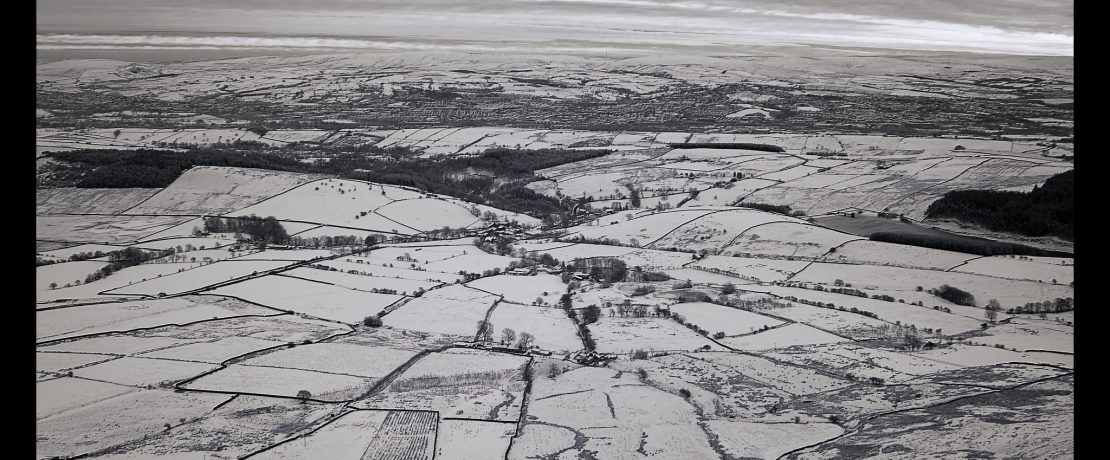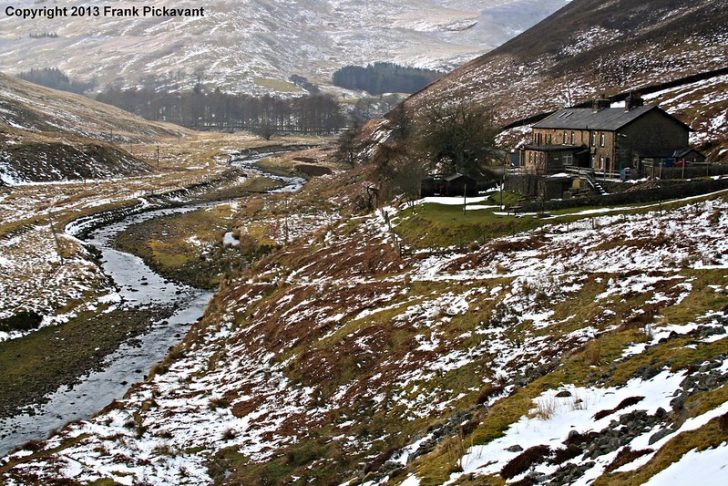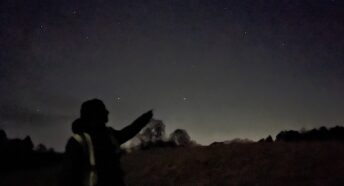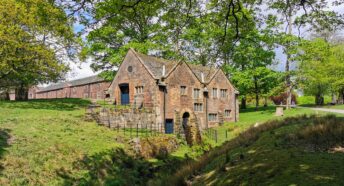Christmas in Lancashire: a trip down memory lane
Daria Mirea reflects on winter and Christmas traditions in Lancashire
The time for introspection has arrived. Aspirational, bright, festive, the holidays are finding us once again cherishing what life has to offer, even after a year that has been less kind towards humanity. “White Christmas” by Elvis Presley is playing in the background, turning my candle-lit room into a pool of contentment.
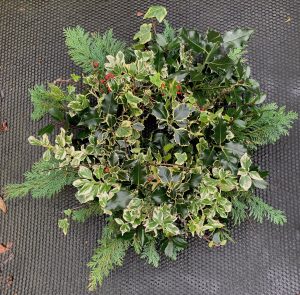 It makes me ponder over carol singing, its origins, and the various forms it took throughout time. As Lancashire is such a culturally rich region, it might be interesting to look into a few Christmas traditions that offer the area a ravishing uniqueness, including carol singing, which had the power to bring people together and to be a generator of meaning, in the same way it is nowadays.
It makes me ponder over carol singing, its origins, and the various forms it took throughout time. As Lancashire is such a culturally rich region, it might be interesting to look into a few Christmas traditions that offer the area a ravishing uniqueness, including carol singing, which had the power to bring people together and to be a generator of meaning, in the same way it is nowadays.
In this sense, “Wassailing” is an ancient custom practiced in the Lancashire area, a name that comes from the Anglo- Saxon phrase “waes hael”, which means “good health”. It is not hard to see how these words are an embodiment of what the Christmas period tries to convey. “Good” finally becomes the constant, the equilibrium we have been seeking the whole year, the holidays open a pathway to spiritual enrichment and finding ourselves. Wishing someone health and putting it above all else, as suggested by the Anglo- Saxon phrase, is the most humane act one could do, especially during these unprecedented times in which health has gained countless dimensions.
Throughout the 19th century and the beginning of the 20th century, a unique custom that goes by many names, from “Wesley Bob” to “Wassail Bob” or “Vessel Cup”, would bring children around Lancashire and Yorkshire together. This tradition generally involved two girls, named “vessel maids”, who would carry a box covered in a white cloth that had been decorated in springs of rosemary, ribbons and a select mixture of evergreens. The use of so many herbs could point to a symbolic dimension: for example, rosemary has come to be associated with love and affection, themes that perfectly fit the aspirational, romantic even, scenery that the holidays depict. The girls would sing carols while holding the box, in exchange for a penny to reveal the fruit and spices hidden underneath the cloth. Had the homeowner denied the vessel cup, bad luck would have been associated with it. If you would like to make a wassail drink to share, there is a recipe here: Wassail Cup (a spiced cider or apple juice drink)
 Similarly, Romania, my homeland, displays a beautiful variety of carol singing traditions that involve unique, harmonious decorations to accompany them. One such tradition is the “Star Carol”. The carol is accompanied by a distinctive decoration made out of a piece of linden wood, foiled in star-shaped coloured paper with tinsel and bells at its top, the middle of the star usually containing a picture of a Biblical scene. The carol singers actually convey the story of the Three Wise Men, who followed the star and reached Bethlehem bearing gold, frankincense and myrrh for Infant Jesus. The benevolent and playful nature of this custom reminds me of simpler times and shows how universal the language of Christmas is. Be it Lancashire or Romania, the love for tradition remains intact.
Similarly, Romania, my homeland, displays a beautiful variety of carol singing traditions that involve unique, harmonious decorations to accompany them. One such tradition is the “Star Carol”. The carol is accompanied by a distinctive decoration made out of a piece of linden wood, foiled in star-shaped coloured paper with tinsel and bells at its top, the middle of the star usually containing a picture of a Biblical scene. The carol singers actually convey the story of the Three Wise Men, who followed the star and reached Bethlehem bearing gold, frankincense and myrrh for Infant Jesus. The benevolent and playful nature of this custom reminds me of simpler times and shows how universal the language of Christmas is. Be it Lancashire or Romania, the love for tradition remains intact.

Another interesting aspect that surrounds Lancashire lies in the supposition that the first written mention of “Santa Claus” has originated in a regional newspaper through a poem published by the Preston Guardian in 1871. It was not until the 1870s that the idea of Santa delivering presents to children on Christmas Eve was adopted, so there is a real chance that the poem has contributed to popularising the idea of Santa Claus.
Perhaps even more endearing is a story (certainly apocryphal but I could not resist including it as I loved it so much!) about a semi-retired priest from Leyland who became a Santa-like figure in the past. An article in Lancashire Life recounts how Father Christopher Moss was a delivery driver for Whittaker’s of Preston, Lancashire’s manufacturer of fizzy pop. Such stories become the playful, childhood- evoking narratives that we sometimes need in order to get a glimpse into who we have become.
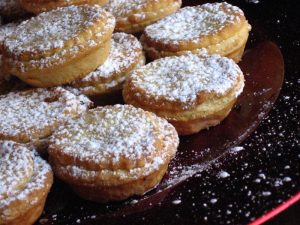 Instead of wearing the red-hooded attire we all know of, Christopher Moss used to deliver the delicious beverages dressed in a brown tunic to promote the company’s prize-winning dandelion and burdock. He often travelled through the night to make sure his customers would enjoy their precious supplies in time for Christmas. In one famous(?!) advertising campaign he is said to have been portrayed coming down the chimney to deliver a bottle of the brown nectar to a typical Lancashire family whose rosy-cheeked children are shouting: “Father Chris Moss is coming!”.[6] Yes – it’s a pun – but the image also captures the pure, benign joy that lights up children’s eyes on Christmas Day: that unconstrained feeling of happiness, the restless uncertainty of what present Santa’s bag might be hiding, finding a source of fascination in every little thing, from the minced pie waiting to be eaten to the perfumed, sharp and refreshing scent of the Christmas Tree.
Instead of wearing the red-hooded attire we all know of, Christopher Moss used to deliver the delicious beverages dressed in a brown tunic to promote the company’s prize-winning dandelion and burdock. He often travelled through the night to make sure his customers would enjoy their precious supplies in time for Christmas. In one famous(?!) advertising campaign he is said to have been portrayed coming down the chimney to deliver a bottle of the brown nectar to a typical Lancashire family whose rosy-cheeked children are shouting: “Father Chris Moss is coming!”.[6] Yes – it’s a pun – but the image also captures the pure, benign joy that lights up children’s eyes on Christmas Day: that unconstrained feeling of happiness, the restless uncertainty of what present Santa’s bag might be hiding, finding a source of fascination in every little thing, from the minced pie waiting to be eaten to the perfumed, sharp and refreshing scent of the Christmas Tree.
This Christmas, let us enjoy the outdoors in winter, take a trip down memory lane, embrace the traditions that Lancashire has to offer, and become rosy-cheeked children in pursuit of happiness. Happy Holidays!
